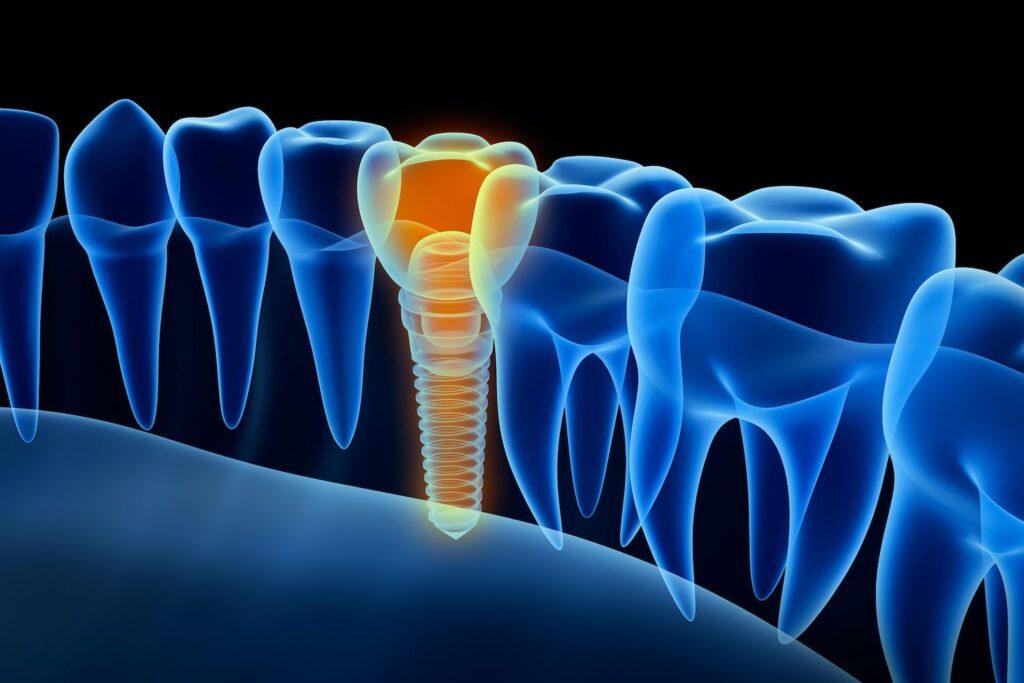Dental implants provide patients suffering from tooth loss with highly comprehensive and beneficial restoration to their smiles. These devices feature a titanium post anchor surgically placed in the jaw that supports the prosthetic teeth above the gumline.
You can see enhanced health, structure, function, and aesthetics with this tooth replacement solution. Implants can stay in place in your smile for twenty years or longer with proper care and maintenance.
Because implants involve multiple dental appointments and oral surgery, many patients may worry about what their recovery may entail after implant dentistry. You can rest assured that your dentist will prioritize your comfort in their care and explain details about your dental procedure when you attend a consultation. You can also read on to find responses from your dental professional to frequently asked questions about what to expect after receiving a dental implant.

Will a Dental Implant Hurt?
The dental implant consists of an anchor surgically placed within the jaw and dental prosthetics securely attached atop it. To ensure you feel no discomfort during the placement procedure, your dentist will provide you with a local anesthetic. But when this numbing medication wears off, will you feel pain?
Patients may experience some soreness during the recovery of the implant anchor procedure. The dentist will provide aftercare instructions that will aid in managing potential pain. This will include icing the jaw to reduce swelling and taking over-the-counter pain medicines.
The soreness may last for a few days, but the implant itself should not hurt. If you experience severe pain that does not respond to management methods, this is abnormal. You should tell your dentist about this issue right away.
Are There Complications That Can Happen After Receiving a Dental Implant?
Your dentist will evaluate your oral health, including your existing dental structure, to ensure you are a good candidate for dental implants prior to initiating this treatment. They want to make sure you have enough healthy jawbone for the fusion process to happen successfully.
Dental implants have a 95% success rate, but there is a slight chance that the implant can fail. This means the device’s fusion with the jawbone did not happen properly. You may notice that the implant feels loose or wobbly in the mouth.
A failing implant can put a patient in great danger of infection, and it may cause them severe pain. If this dental emergency arises, contact your dentist for urgent assistance.
How Can I Take Care of a Dental Implant?
You can minimize the risk of dental implant failure or other complications by following aftercare guidelines from your dentist. This will entail continuing good oral hygiene while still being careful near healing surgical sites after the placement procedure.
Make sure you continue to brush your teeth twice per day and floss each day in order to remove harmful residues that might otherwise cause cavities, gum disease, and other dental issues. These problems can damage your gums and teeth to the extent that they affect the fit of your implants. Then your implants could be in danger.

